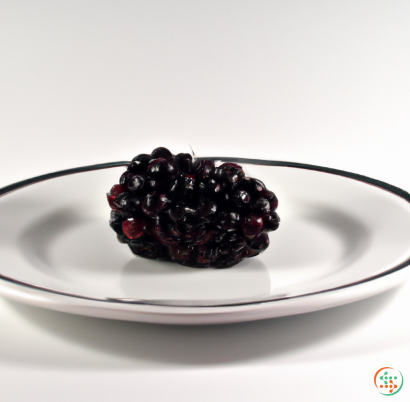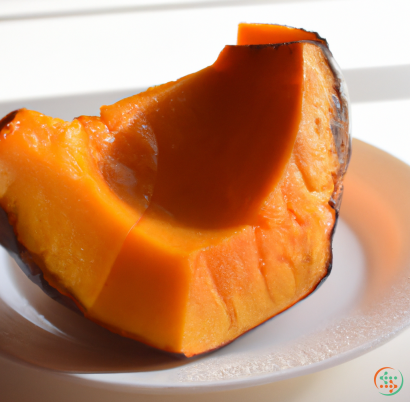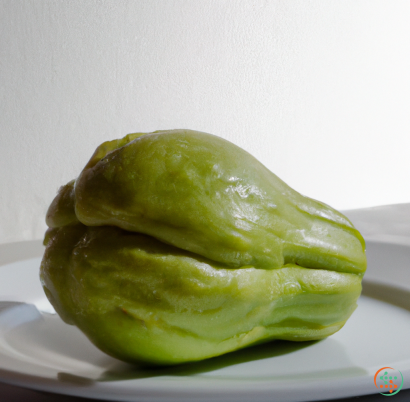Avocado
Ahh, the avocado – the only food deemed worthy enough to be enshrined with it’s own ‘day of celebration’. It’s a divisive fruit, with some eagerly devouring the green goodness while others turn their noses at the sight of it. There’s no denying that the world has gone avocado mad – the creamy delight, can now be found in everything from smoothies, toast, salads and guacamole, making it a global sensation. But what exactly is an avocado? How did it become so popular, and what are its nutritional benefits? Here’s a rundown on the enigmatic avocado.
The avocado is technically a fruit, which originates from Mesoamerica and is classified as a large berry with a single seed. It generally comes in one of three varieties - fuzzy, smooth-skinned, or dark-skinned. It has a thick dark green skin on the outside and a yellow green flesh inside. Despite its appearance and texture, avocados are considered a superfood due to their high levels of vitamins, healthy fats, and minerals.
The history of the avocado can date back as far as 500 BC when it is believed to be one of the staples of the ancient Aztec diet. The fruit was given much reverence and discovered by the Conquistadors in the 16th century, who were eager to promote it in Europe. However, it wasn't until the beginning of the 20th century that the fruit began to become popular, as immigrants from Central and South America brought the fruit to North America, making it a staple throughout North America.
The avocado also began appearing in United States supermarkets in the mid 1930s, regarded as we do today as a health food. Its versatility and versatility has made it an increasingly popular choice for consumers, and now it’s found in cafes, restaurants and grocery stores all across the world, in addition to being used in various traditional dishes.
Avocados are a nutritional powerhouse, with a vast array of benefits. They are naturally low in sugar and contain virtually no saturated fats. While they contain 'healthy' mono and polyunsaturated fatty acids, they are also rich in potassium, lutein, and antioxidants which can help ward off a number of diseases and conditions. While avocados may not be suitable for everyone, their nutritional profile still makes it a smart choice for those looking for a healthier diet.
In terms of taste and texture, avocados have a buttery, creamy consistency and unique flavor. They are often used as a substitute for mayonnaise or butter, and make a great addition to salads, sandwiches and dips. For those looking for convenient ways to incorporate avocado into their daily routine, avocados can also be pureed and added as a topping to toast or blended into smoothies. Avocado makes an ideal base for guacamole, which is one of the healthiest and most delicious sources of monounsaturated fat and dietary fiber.
All in all, the avocado has become a global phenomenon, with evidence pointing to many more health benefits than was previously thought. Forget ice cream and other processed snacks, the avocado is a superfood and with its health profile, there is no wonder it has become so popular. Whether you are adding it to your sandwich, smoothie or making guacamole, it’s clear that the avocado is here to stay!
The Avocado – A Superfood from Crop to Plate
The delicious, creamy and nutritious avocado is enjoyed around the world with its popularity soaring in recent years. From the delicious guacamole and avocado toast, to smoothies and salad toppings, the ways to enjoy this superfood are endless. But where does the humble avocado come from? How does it grow, ripen and reach our dinner plates? This blog post aims to explain this process in detail, from avocado crop to plate.
Avocado Production
To produce a single ripe avocado, a whole crop of trees and fruits need to be grown, tended and harvested. Avocado trees, a member of the Lauraceae plant family, are cold-sensitive subtropical and tropical plants, so they thrive in warm and sunny climates. In the United States, most commercial farming of avocados is done in the states of California and Florida, where the climate is warm and the soil is well irrigated. The trees can be planted in soil or in pots, but most commercial farms use soil for their production because the trees need a steady supply of water, sunlight, and fertilizer to cope with the harvest season.
An avocado tree can live for up to 30 years and can produce 500 to 1,000 avocados per year, depending on climate and soil conditions. An avocado tree’s growth and harvest time can depend on the variety, with some varieties bearing fruit within one year of planting, while others can take up to three years before they bear fruit.
Harvesting and Ripening Avocados
When it is time to harvest the avocados, the farm workers come in and do the pickers job. Depending on the variety, the fruits can be handpicked or picked with ladders or even with mechanical devices. The farm workers must be careful while collecting the fruits, as they must obtain only the vibrant green, undeveloped fruits with firm skin without any visible bruises or damage.
Once the fruits are collected, they are immediately transferred to climate controlled conditions or boxes and will be stored for about a week in order to let them ripen. This process is known as “pre-climacteric fruit ripening”, which is a process by which the fruit ripens without the need for any external agents such as ethylene or sugar, which is commonly done for other fruits. During this ripening period, the fruit will slowly increase in sugar content and the skin color will start to turn.
Avocado Distributions
Once the avocados have been picked and ripened, they will then be prepared for shipping. The ripened avocados will then be inspected and cleaned in order to make sure that they are free of any bacteria and contaminants, while also checking for any damage.
Once they have passed the inspection process, they will then be boxed up and given a unique traceability code, allowing the farmer to track them to the store shelf. The boxes are then sent off to the distributors, who will then further check the quality and ripeness of the avocados before shipping them to their respective locations.
Communication between the distributor and the retailer is essential to ensure that the product that arrives at the store is fresh, ripe and in perfect condition. In most cases, the avocados will be delivered to the store inventory within 2 to 5 days after being picked from the farm.
The Journey from Store Shelf to Plate
When shopping for avocados, customers need to know how to select and prepare the fruit for optimal enjoyment. The key to picking the perfect avocado is choosing one that looks ripe, but not overly ripe. The perfect avocado will be dark and firm, with a slightly bumpy surface that yields to gentle pressure.
Avocados can be cut and served as is, packed into salads, mashed and spread as guacamole, or used as an ingredient in baked goods, like avocado brownies. They can be added to sandwiches, tacos, smoothies and much more. The possibilities are endless when it comes to incorporating avocado into creative, nutritious foods.
Finalizing the Avocado Experience
Whether a person is eating avocados in their raw form or as part of a meal, the best way to enjoy this superfood is to consume it right away rather than storing it for extended periods. This ensures that the fruit is at its nutritional, texture and flavor peak.
Avocados can be stored up to two days in the refrigerator if they are ripe, but if they are not ripe, they can be stored for up to seven days in a dark, dry place. To extend the shelf life of a cut avocado, you can garnish with a squeeze of fresh lemon juice and store it in a tightly sealed container in the fridge.
Conclusion
There are so many fantastic ways to enjoy the humble avocado, from guacamole to smoothies, and from salads to toast. But have you ever stopped to wonder where the avocado comes from? How it is grown and harvested, transported, stored and enjoyed? This blog post took one such journey, from crop to plate, looking at the details of avocado production and providing tips on how to enjoy this superfood at its nutritional best. With a clear understanding of the process of avocado production, you can now appreciate this superfood even more!
| Vitamin A | 0.007 mg | |
| Beta-Carotene | 0.062 mg | |
| Alpha-Carotene | 0.024 mg | |
| Vitamin E | 0.00207 grams | |
| Vitamin K | 0.021 mg | |
| Vitamin C | 0.01 grams | |
| Vitamin B1 | 0.07 mg | |
| Vitamin B2 | 0.13 mg | |
| Vitamin B3 | 0.00174 grams | |
| Vitamin B4 | 0.0142 grams | |
| Vitamin B5 | 0.00139 grams | |
| Vitamin B6 | 0.26 mg | |
| Vitamin B9 | 0.081 mg |
| Calcium | 0.012 grams |
Daily Value 1.3 g
|
| Iron | 0.55 mg |
Daily Value 0.018 g
|
| Magnesium | 0.029 grams |
Daily Value 0.4 g
|
| Phosphorus | 0.052 grams |
Daily Value 1.25 g
|
| Potassium | 0.485 grams |
Daily Value 4.7 g
|
| Sodium | 0.007 grams |
Daily Value 2.3 g
|
| Zinc | 0.64 mg |
Daily Value 0.011 g
|
| Copper | 0.19 mg |
Daily Value 0.9 mg
|
| Manganese | 0.14 mg |
Daily Value 0.0023 g
|
| Selenium | 0.4 ug |
Daily Value 0.055 mg
|
| Fluoride | 0.007 mg |
Daily Value 0.004 mg
|
| Tryptophan | 0.025 grams | |
| Threonine | 0.073 grams | |
| Isoleucine | 0.084 grams | |
| Leucine | 0.143 grams | |
| Lysine | 0.132 grams | |
| Methionine | 0.038 grams | |
| Cystine | 0.027 grams | |
| Phenylalanine | 0.097 grams | |
| Tyrosine | 0.049 grams | |
| Valine | 0.107 grams | |
| Arginine | 0.088 grams | |
| Histidine | 0.049 grams | |
| Alanine | 0.109 grams | |
| Aspartic Acid | 0.236 grams | |
| Glutamic Acid | 0.287 grams | |
| Glycine | 0.104 grams | |
| Proline | 0.098 grams | |
| Serine | 0.114 grams |
| Galactose | 0.1 grams |
|
| Glucose | 0.37 grams |
|
| Fructose | 0.12 grams |
|
| Sucrose | 0.06 grams |
|
| Total Sugars | 0.7 grams |
per 100g
|
| Palmitic acid (16:0) | 2.08 grams |
|
| Stearic acid (18:0) | 0.05 grams |
|
| Total Saturated fatty acids: | 2.13 g | |
| Oleic acid (18:1) | 9.07 grams |
|
| Palmitoleic acid (16:1) | 0.7 grams |
|
| Gadoleic acid (20:1) | 0.03 grams |
|
| Total Monounsaturated fatty acids: | 9.8 g | |
| Omega-6 Gamma-linolenic acid (18:3) | 0.02 grams |
|
| Omega-3 Alpha-linolenic acid (18:3) | 0.11 grams |
|
| Linolenic acid (18:3) | 0.13 grams |
|
| Linoleic acid (18:2) | 1.67 grams |
|
| Total Polyunsaturated fatty acids: | 1.93 g | |
| Campesterol | 0.01 grams |
|
| Beta-sitosterol | 0.08 grams |
|
| Total Sterols: | 0.09 g | |







